Climate and Hydrology Research
Sustainability of Productive Systems
Integrated Watershed Management
Disaster RiskManagement
Capacity Buildingand Communications
Projects
This program has two main objectives:
1) To generate meteorological data and information about water resources, as this type of data, which has significant value for the use of natural resources is scarce in the region.
2) To analyze the data in order to create recommendations for actions and technical and scientific strategies.
The information is generated at four levels:
1) The ICC’s Weather Station Network
The ICC operates a network of 30 weather stations that generate data for seven variables every 15 minutes. The information is available in real time on our platform: http://redmet.icc.org.gt/
2) The ICC’s Hydrometric Station Network
The ICC has committed to creating a network of hydrometric stations that will allow it to monitor the flow of rivers in the Pacific Slope in real time. This network currently consists of three stations. However, because the project is still in its initial stage, the data generated from these stations is managed internally within the ICC.
3) The capacity of rivers in the dry season
The ICC generates information that is used as a principal material to guide technical roundtables and committees regarding the use of water in a rational manner. In addition, the ICC measuring the flows of 52 rivers are being carried out and have generated more than 6,000 data points each year (season 2018-19). The information generated has contributed to fulfilling the main objective of the local technical roundtables: Ensuring that the water, which is a common good, arrives to the mouth of the river on a permanent basis.
4) The levels of community wells
a. Groundwater is a strategic resource on the south coast. Around 40% of the population lacks running water at home and relies on wells to access groundwater. The ICC monitors 249 wells four times a year to follow changes in the water levels and to anticipate any problems that might occur in the region.

The analysis of generated data allows the ICC to work in six main research areas:
1) Meteorology:
Analysis of meteorological data generated by the ICC’s Weather Station Network; annual meteorological summary; standardization of rain gauges used in the area; analysis of temperature inversion; analysis of intensity of rainfall; determination of the water balance; monitoring of storms and weather events that could affect the country; and, the of creation of a bulletin related to El Niño.
2) Agrometeorology
Analysis of weather conditions and their influence on the crops; development of a controlled-burn system; analysis of crop productivity and its relationship to climate; and, development of studies for the projection of pests and the drift of areal applications based on the weather conditions.
3) Climatology
Statistical analysis of climatic variables; analysis of the beginning and end of the rainy season; characterization of the occurrence of the canícula (the short drought in the rainy season) in the south coast of Guatemala; characterization of meteorological droughts and wet periods (floods); and, characterization of the wind’s direction.
4) Hydrology
Analysis of hydrological processes; analysis of hydrometric information; and, flood zoning on the south coast of Guatemala.
5) Water management
Generation of materials and recommendations for the management of water on the south coast; monitoring of and communication with users to support the coordination of water use; and, generation of annual reports.
6) Groundwater
Generation of basic knowledge regarding the operation of groundwater systems in the region; maps of the piezometric level; characterization of the subsoil using geophysical surveys; water quality analysis; numerical models; isotope analysis; hydrological balance; and, saline intrusion studies.

The Sustainability of Productive Systems program contributes to the sustainability of the productive systems that are priority for the Private Institute for Climate Change Research, ICC, through its environmental management.
Among the main activities of this program are:
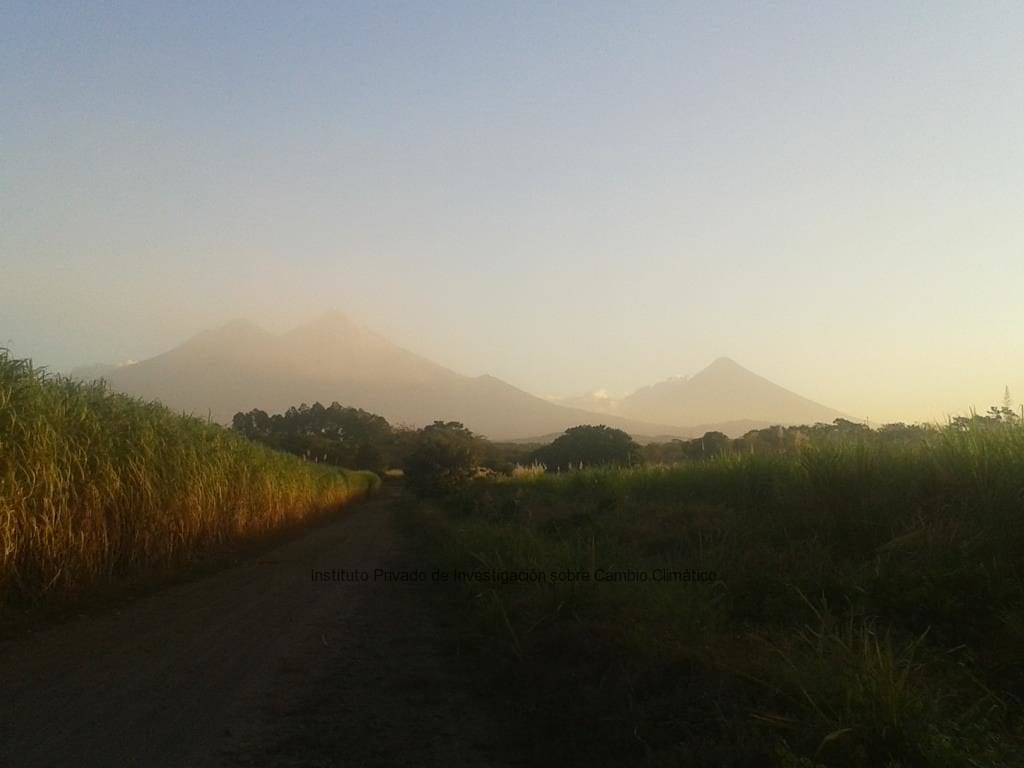
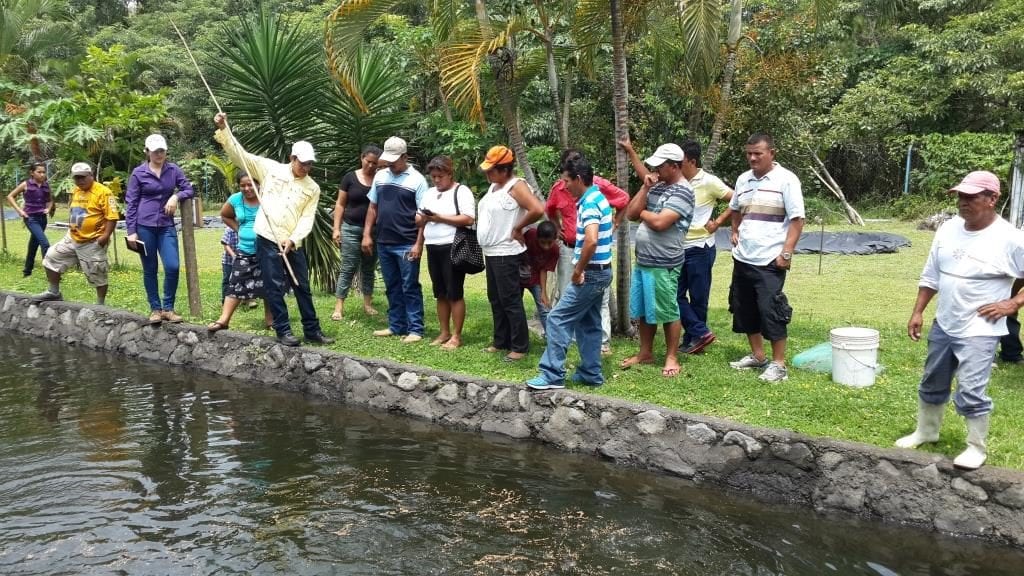
Promoting and implementing actions to upkeep the integrity of the natural resources in the watersheds considering their socio-cultural context is the main objective of the Integrated Watershed Management program.
To achieve the main objective, the following main work areas have been established:
• To gather and generate basic information of the watersheds and to establish a base line.
• To promote and follow up on social organization processes to manage watersheds
• To influence in the management and protection of forests
• To support the integrated water management
• To contribute in soil protection


Through this program, the Private Institute for Climate Change Research, ICC, influences disaster risk reduction by promoting actions based upon the analysis of natural and social factors. Likewise, it identifies the main climatic threats of the areas. This program aims to contribute to the understanding of potential risks and to watch them over time.
In the social scope, the program performs diverse analysis of the vulnerability of towns, their infrastructure and production systems, therefore, weak points are identified and actions get prioritized to reduce risks.

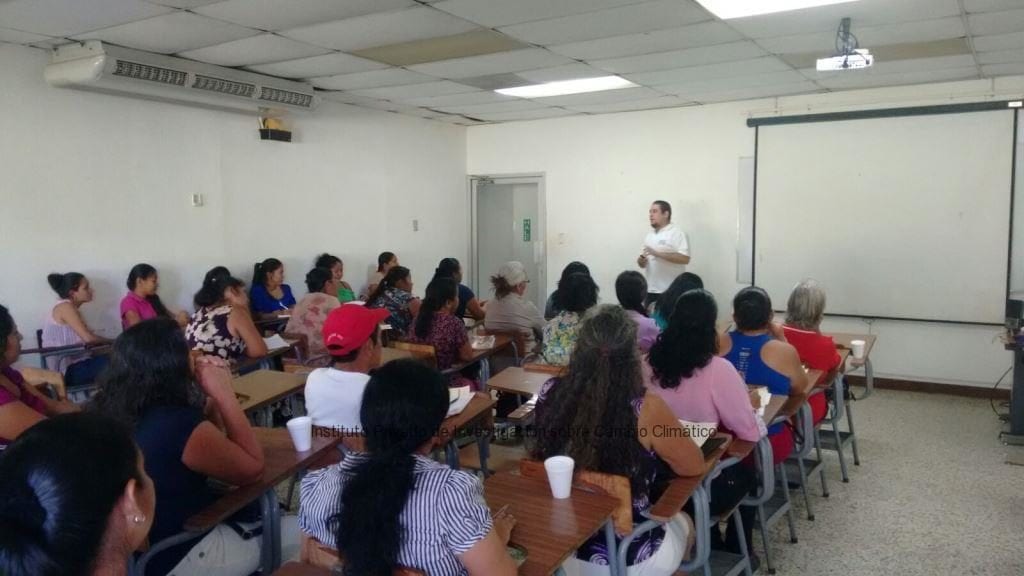

The Capacity Building and Communications program, which has been a part of the ICC since its inception in 2010, focuses on strengthening and developing the climate change adaptation capacities of the general population, of vulnerable groups, and of productive systems within the region.
The ICC considers capacity building to be transversal component between its different programs and its actions in the field. In addition, the program responds the legal mandates set forth in the National Climate Change Policy and the article 23 of the Framework Law to Regulate Reduction of Vulnerability, Mandatory Adaptation to the Effects of Climate Change, and the Mitigation of Greenhouse Gases.
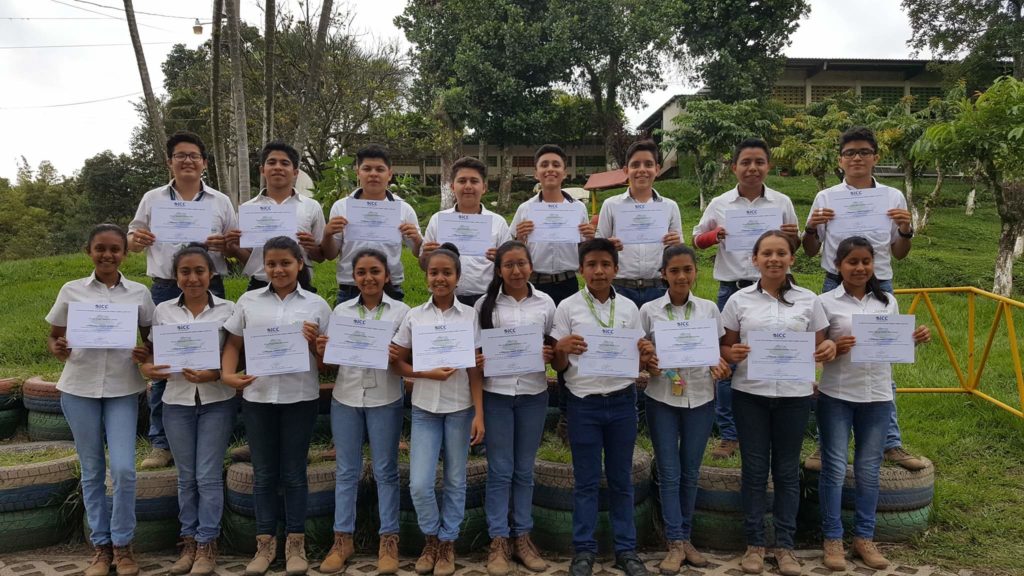
In the same way, the program responds to the 6th article of the United Nations Framework Convention on Climate Change (UNFCC), which calls for the development of efforts to improve access to information, outreach, education, training, participation, and cooperation in the face of climate change.
The program’s actions are concentration in three overarching areas of work:
A. Capacity Building
1. The program implements systematic processes to strengthen and develop capacities in climate change adaptation and related themes through diplomados (organized courses), courses, workshops, informative talks, seminars, and congresses, among others. These processes are directed to vulnerable groups and key actors in the ICC’s influence and seek to strengthen these groups’ capacities for climate change adaptation and mitigation. These groups include community leaders (both women and men), specialists or professionals, governmental and non-governmental organizations, governmental authorities, and journalists or social communicators.
2. The program provides consulting and assistance on themes related to climate change and the environment to the Private Institute for Climate Change Research’s member organizations.
3. By coordinating and implementing training processes, the program provides professional development opportunities to the ICC’s staff.
1. Through digital platforms: The ICC utilizes digital platforms, such as social media and its website, to disseminate its research. These communication channels allow the information to be delivered to a wide audience, generating immediate interaction between the scientific contents and the public.
2. Through printed materials: With the goal of strengthening internal and external communication, the ICC utilizes printed materials to share its research, activities, and projects.
3. Through the media: Various social communication methods, including radio, television, and print and digital media, allow the ICC to make its research and actions known locally, national, and internationally.
4. Through scientific journals: The ICC has prioritized the publication of results in national and international scientific journals that are indexed and specialized in themes relating to climate change. The ICC is the co-founder of the scientific journal Yu’am, which contributes to the scientific world by disseminating climate change-related scientific knowledge that was generated in Mesoamerica.
1. The ICC produces research about principal livelihood methods, such as agriculture, in relation to adaptation methods for climate change and variability. This allows the institute to generate or customize new technologies that strengthen families’ food security in the face of climate- or weather-related threats, such as floods or droughts.
2. The ICC establishes adaptation initiatives and actions in the face of climate change and variability for those whose livelihoods depend on agriculture. In addition, it promotes the establishment of climate change adaptation demonstration plots, thus strengthening the food security of families living in the Pacific Slope of Guatemala.
3. The ICC develops and undertakes fieldwork related to socio-ecological resilience in the Pacific region of Guatemala, an emerging theme of relevance at a global level that is key to understanding the recovery of socio-ecological systems in the face of climate threats.
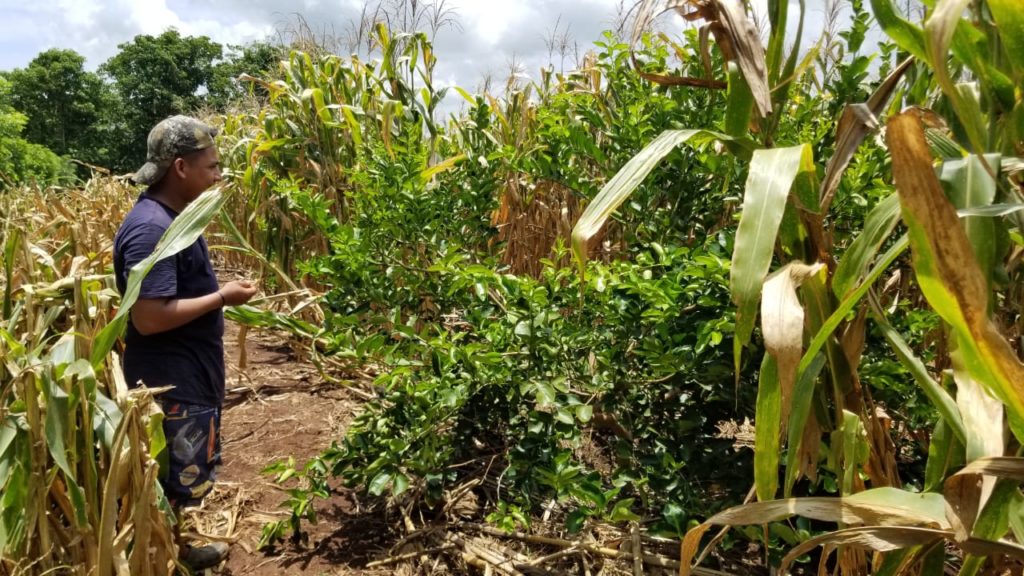
Office in Mazatenango:
Zona 1, 2 av. 8-49 Local 16 C.C. Santa Clara, Mazatenango, Suchitepéquez
Office in Sololá:
3 calle 5-01 zona 1 Sololá, Sololá
Office in Parramos:
Km 60 carretera a Parramos, Parramos, Chimaltenango
Office in El Salvador:
Sonsonate, El Salvador